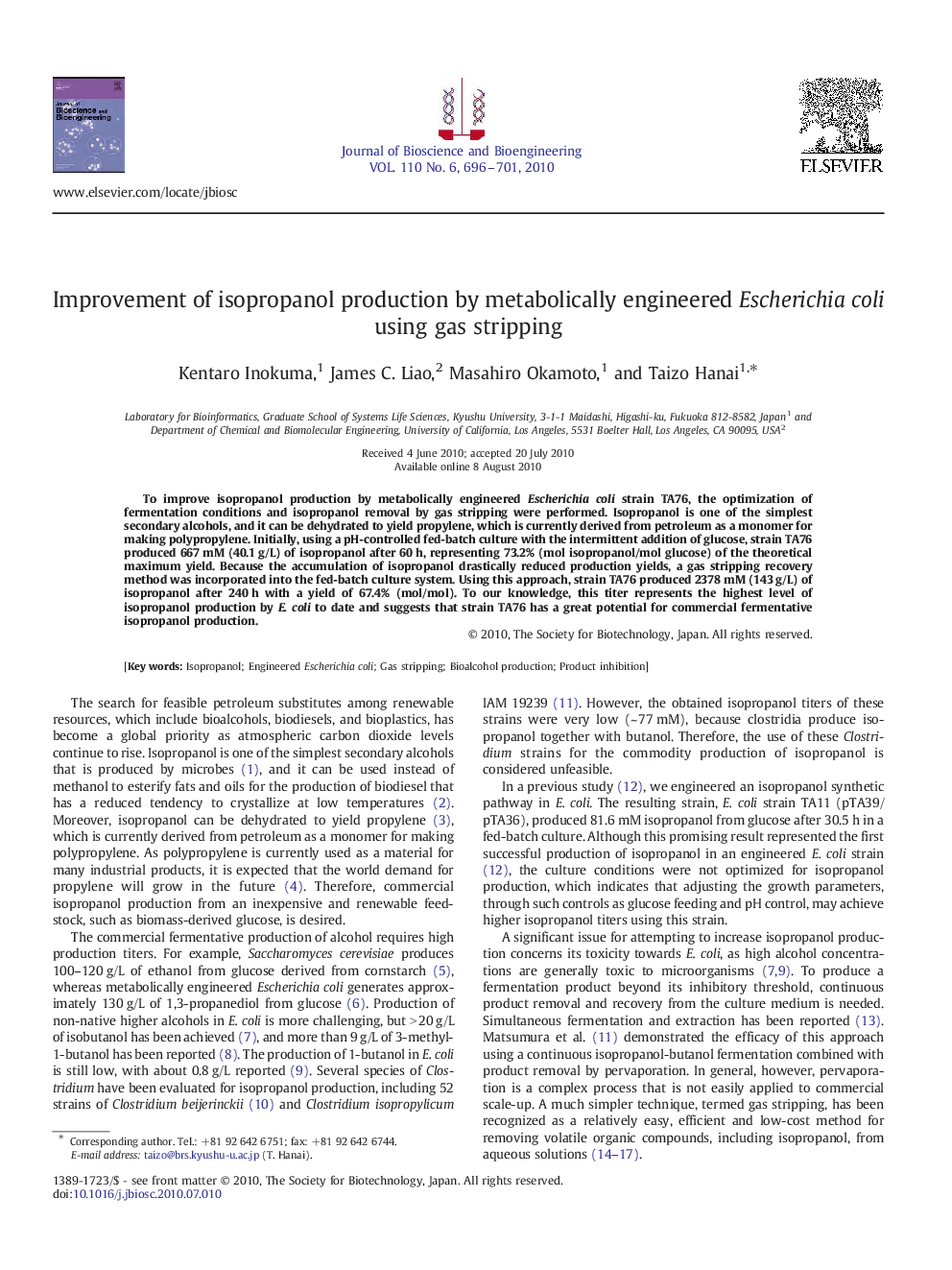| Article ID | Journal | Published Year | Pages | File Type |
|---|---|---|---|---|
| 21714 | Journal of Bioscience and Bioengineering | 2010 | 6 Pages |
To improve isopropanol production by metabolically engineered Escherichia coli strain TA76, the optimization of fermentation conditions and isopropanol removal by gas stripping were performed. Isopropanol is one of the simplest secondary alcohols, and it can be dehydrated to yield propylene, which is currently derived from petroleum as a monomer for making polypropylene. Initially, using a pH-controlled fed-batch culture with the intermittent addition of glucose, strain TA76 produced 667 mM (40.1 g/L) of isopropanol after 60 h, representing 73.2% (mol isopropanol/mol glucose) of the theoretical maximum yield. Because the accumulation of isopropanol drastically reduced production yields, a gas stripping recovery method was incorporated into the fed-batch culture system. Using this approach, strain TA76 produced 2378 mM (143 g/L) of isopropanol after 240 h with a yield of 67.4% (mol/mol). To our knowledge, this titer represents the highest level of isopropanol production by E. coli to date and suggests that strain TA76 has a great potential for commercial fermentative isopropanol production.
